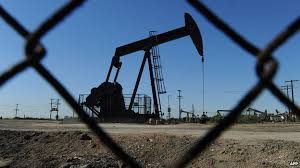As of today a barrel of oil (should you need one delivered in January) will set you back less than $60. The last time it was that cheap was in May 2009, just after the Federal Reserve launched its quantitative easing program to stop the U.S. economy imploding.
The trigger for Friday’s tumble was a new report from the International Energy Agency on the outlook for the world market in 2015. The Paris-based organization cut its forecast for demand growth next year by 230,000 barrels a day to 900,000 b/d. That’ll mean that the planet is “only” burning an average of 93.3 million b/d next year, up from 92.4 million this year.
The irony in the IEA’s report is that it’s oil-producing countries that will be using less oil than expected next year, a stark illustration of how the 40% drop in prices this year has transferred billions of dollars of spending power from those countries to consumers elsewhere. Economists might be cooing over how lower oil prices are acting like a tax cut in the West, but from Angola to Iran and Russia, it’s like a tax increase, as there are few tax dollars available to recycle into public-sector investment,














